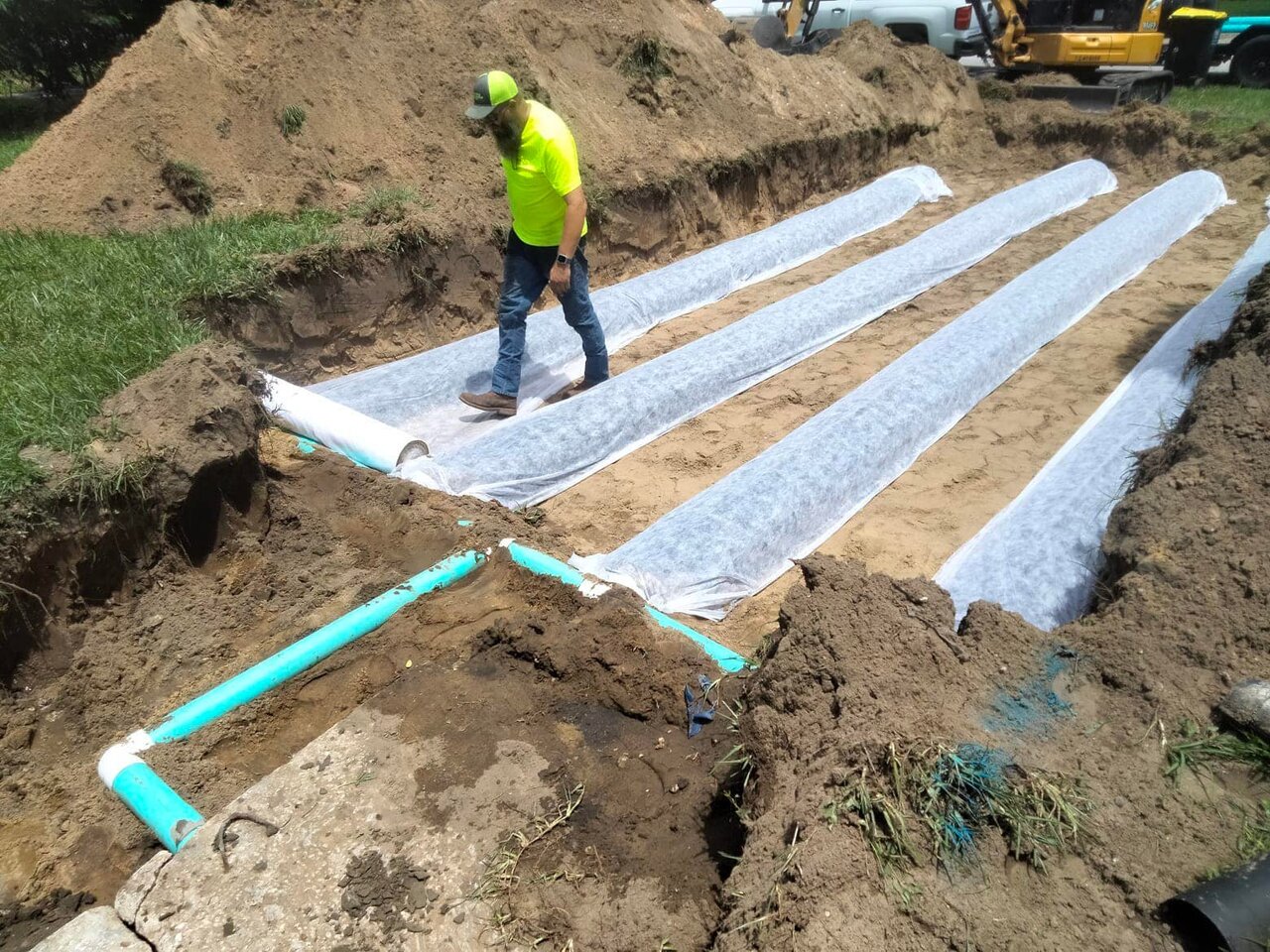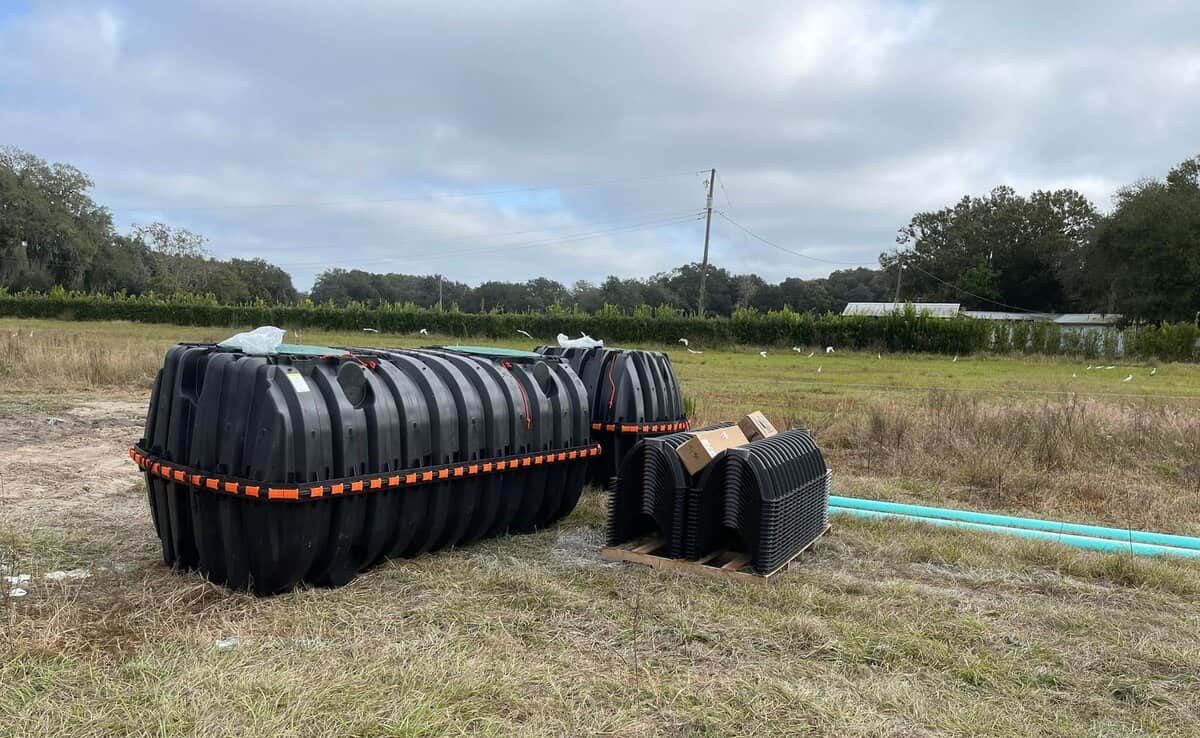Homeowners or commercial property owners with septic systems know there are some important guidelines that they must follow to keep their systems functioning effectively. One of those guidelines is to limit the amount of fats, oils, and grease that get flushed down the drain, since these can lead to clogs.
To help further limit the amount of FOG that gets into a septic system, some have a device known as a grease trap, or grease interceptor, installed between the home or business and the sewer line or septic tank. The purpose of a grease trap is to capture grease and oil before they enter the septic tank or sewer system.
When installed and maintained properly, a grease trap for a septic tank can be an effective tool in protecting your septic system from damage.
Why Are Grease Traps Important?
If you have a septic system, then you need to be aware of the dangers that fats, oils, and grease (FOG) can pose. FOG can build up in your pipes, septic tank, or drain field, causing major problems like backups, overflows, and even sewage spills.
FOG can come from many sources, including cooking oils, butter, margarine, lard, shortening, gravy, sauces, salad dressings, bacon grease, meat drippings, and more. When these substances are poured down the drain or flushed down the toilet, they can solidify and adhere to the walls of your septic tank and pipes, or even make their way into the drainfield. Over time, this build-up can lead to serious problems.
- It can cause clogs that reduce the flow of water through your pipes. This can eventually lead to backups and overflows.
- The build-up of FOG can also lead to headaches for septic system owners because it increases the frequency with which tanks need to be pumped. And if a tank is not pumped frequently enough, it can fail entirely—leading to an expensive repair bill.
- FOG can reduce the ability of the septic drainfield to process wastewater before it reenters the environment. This can lead to backups or groundwater contamination, which can be costly to resolve or repair.
The best way to prevent problems caused by fats, oils, and grease is to keep them out of your septic system in the first place. You can do this in several ways:
- Pour used cooking oils into a container (like an empty milk jug) and dispose of them in the trash instead of pouring them down the drain.
- When cooking with grease or oil, wipe off excess with a paper towel before washing dishes so that less goes down the drain.
- Spread the word to family members and house guests about the importance of not pouring FOG down the drains.
Of course, even with proper precautionary measures, some FOG can still get into your pipes. A septic grease trap can provide another layer of protection to prevent that FOG from causing problems with your septic system.

How Does a Septic Tank Grease Trap Work?
Septic tank grease traps work by allowing wastewater to flow into the unit while capturing the grease and oil. The unit consists of two chambers that are separated by a baffle. The first chamber is where the wastewater enters the unit. As the wastewater flows into this chamber, the baffle prevents the solid materials from flowing into the second chamber.
The second chamber is where the fats, oils, and grease are captured. This chamber is typically larger than the first chamber, which allows it to hold more grease. Once the fats, oils, and grease have been captured in this chamber, the remainder of the wastewater is then able to flow out of the unit and into either the sewer line or septic tank.
Grease Trap Maintenance
Proper maintenance of your septic tank grease trap is essential to its proper function. In order to ensure that your septic tank grease trap is working properly, you should have it pumped out and inspected on a regular basis by a professional.
The frequency with which you have your septic tank grease trap pumped will depend on several factors, including the size of your unit and the amount of water that flows through it each day. A commercial grease trap will likely need more frequent cleaning than a residential grease trap, especially for businesses such as restaurants, bars, or cafes.
Here is the basic steps that happen in grease cap cleaning:
- The cover of the grease trap is removed carefully to ensure that the gaskets are not damaged in the process.
- The septic professional will use a measuring stick to determine how much FOG has been stored in the trap. This helps determine how frequently cleanings are needed and can help identify if there are problems elsewhere in the system.
- The liquid in the grease trap will be removed, and the solids transferred to a leak-proof container.
- The grease trap will be cleaned with soap and water, and inspected to ensure it is still in good shape.
- The lid will be replaced and secured appropriately.
In addition to having your septic tank grease trap pumped out on a regular basis, you should also have it inspected periodically for any damage or leaks. If you notice any damage or leaks in your septic tank grease trap, it is important to have them repaired as soon as possible in order to avoid any further damage to your unit or sewer system.
Septic Service In and Near Lakeland
Septic and Drainfield Depot is the best septic company in and near Lakeland.
Our septic tank services include installation, pumping, cleaning, and inspections. We also offer installation, repair, and service for lift stations and drain fields for residential and commercial properties.
With a team of experienced professionals, we stand ready to assist with all your septic needs 24/7.
Contact us today for a free septic estimate.







